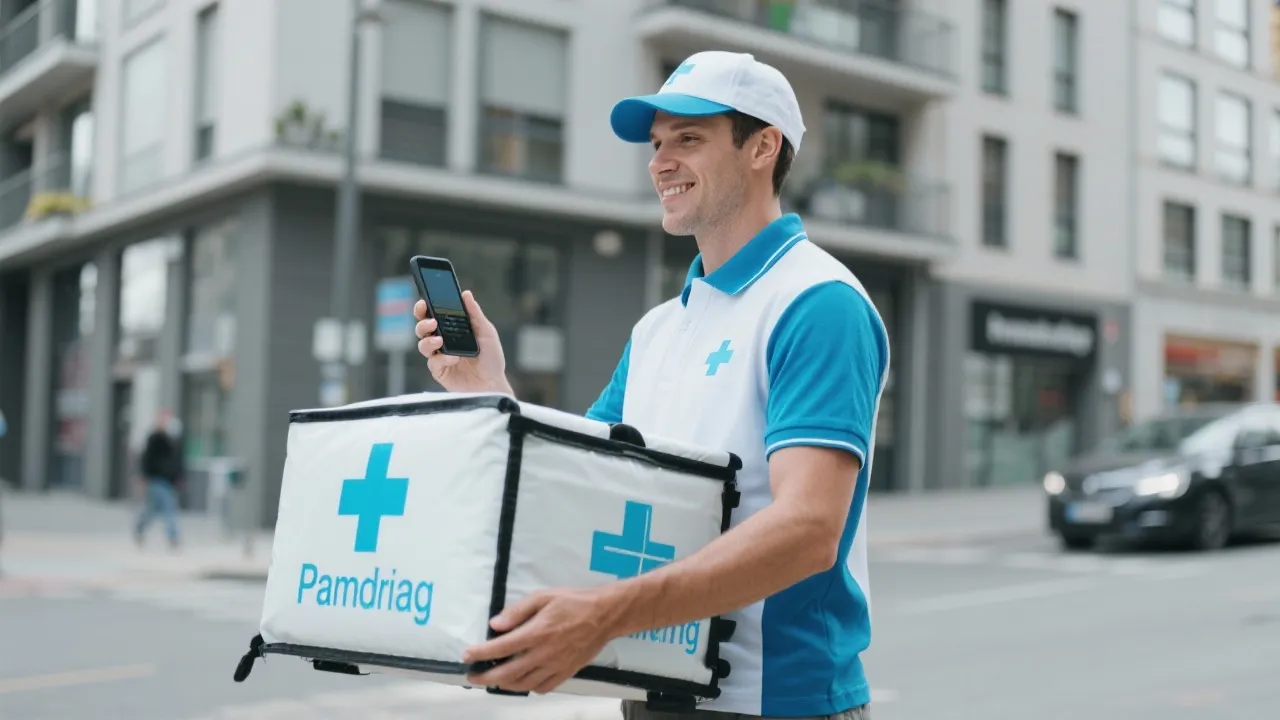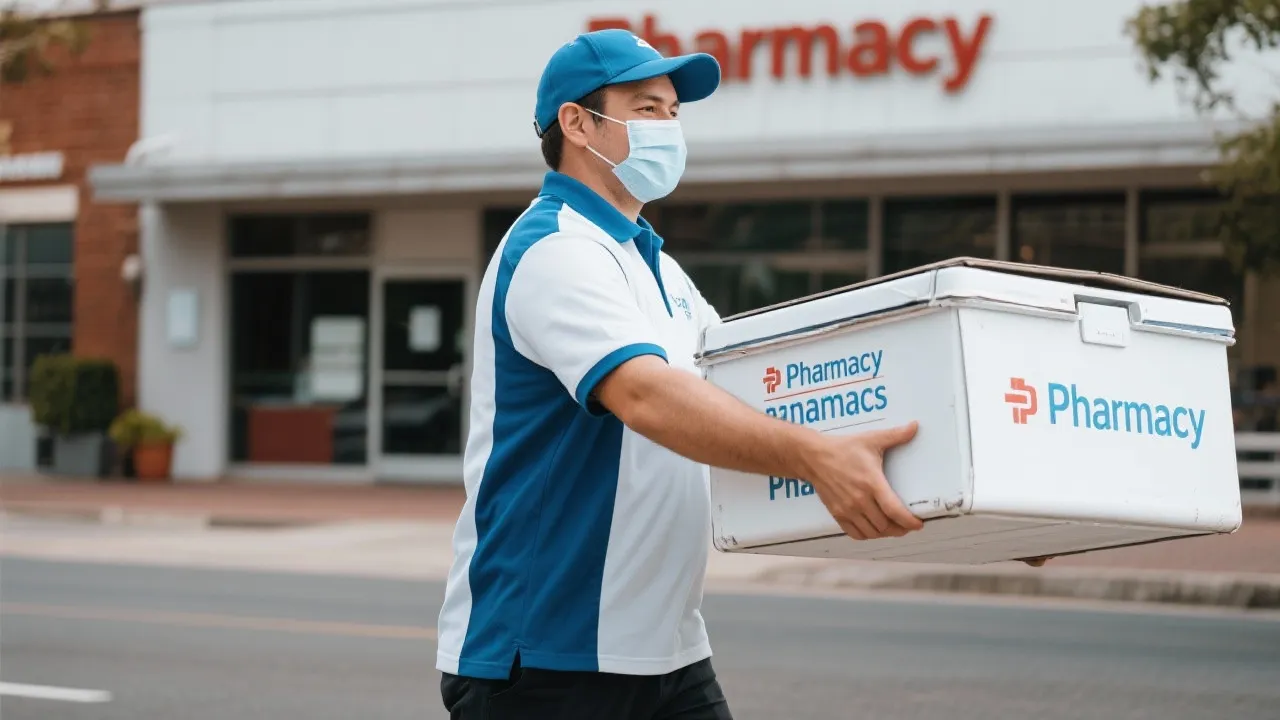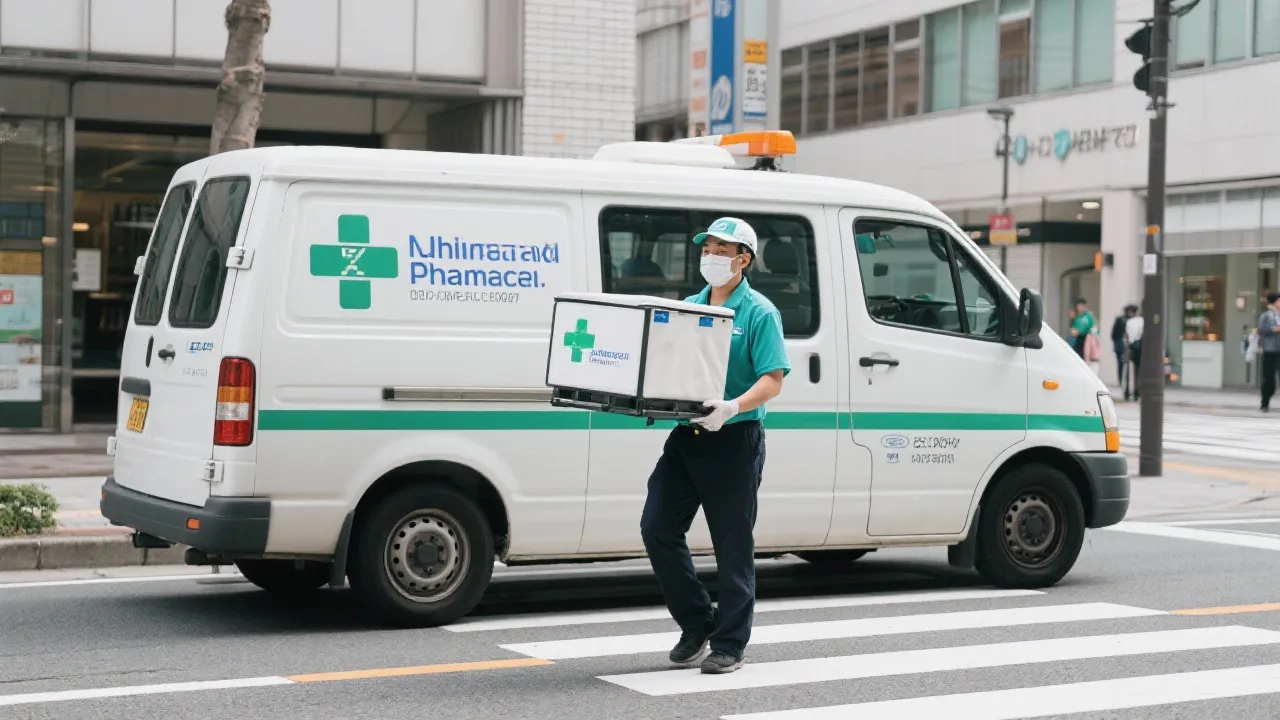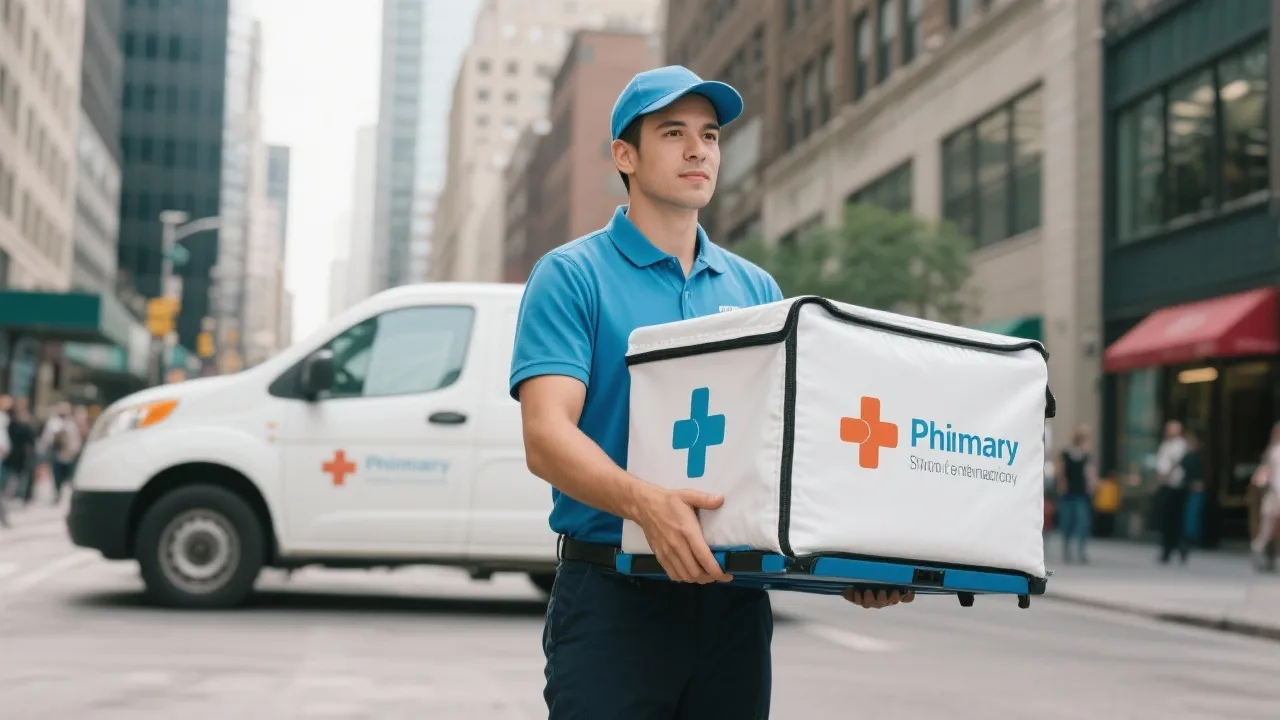Careers as Pharmacy Delivery Drivers
Exploring careers as pharmacy delivery drivers offers insight into an essential role in healthcare logistics. This position involves timely medication delivery, ensuring patient needs are met efficiently. The rising demand for personalized healthcare services has bolstered the need for reliable delivery drivers, particularly in urban areas where convenience is critical.
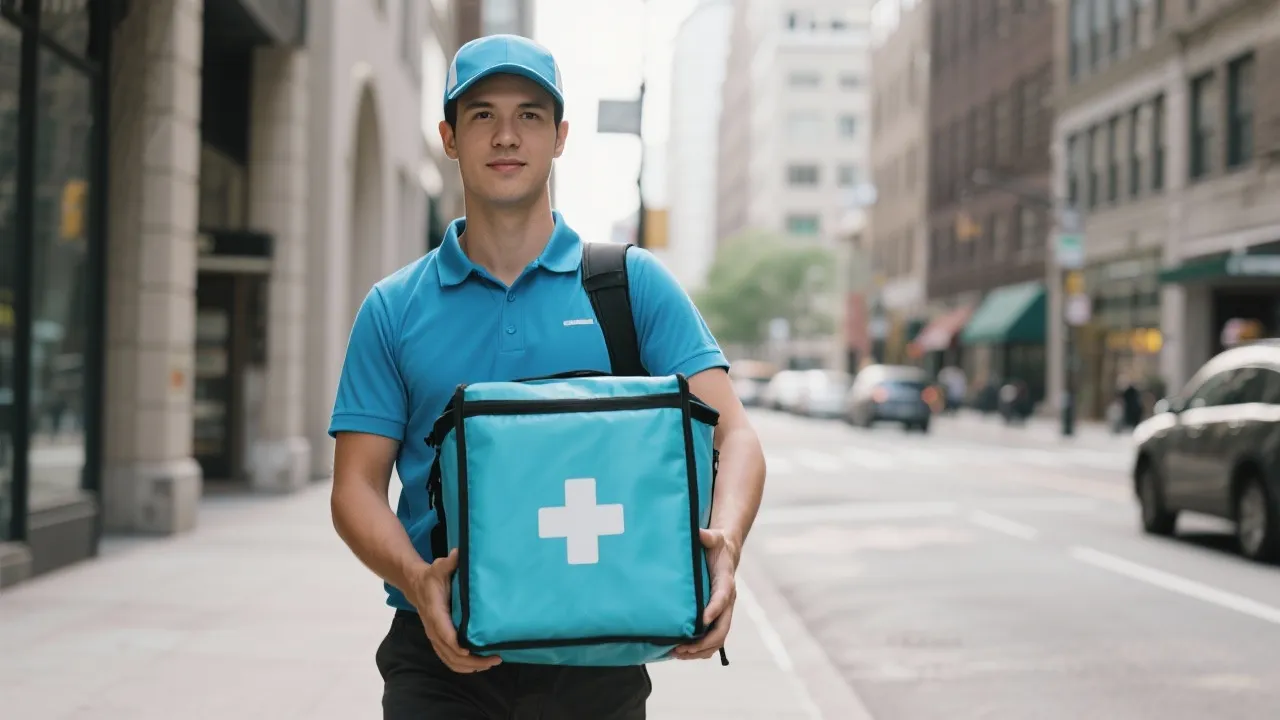
An Overview of the Pharmacy Delivery Driver Role
The role of a pharmacy delivery driver is integral to modern healthcare systems. These professionals are responsible for ensuring the timely delivery of pharmaceuticals to customers, enhancing the accessibility and convenience of medical care. As the healthcare industry evolves to meet the increasing demand for at-home services, the task of delivering medications safely and efficiently has gained prominence.
The growing need for pharmacy delivery drivers reflects broader trends in how healthcare is consumed today. Patients value the convenience of having medications delivered directly to their homes, especially the elderly and individuals with mobility challenges. This convenience adds a layer of accessibility that is essential in promoting adherence to medication regimens, ultimately leading to better health outcomes.
Key Responsibilities and Skills
Pharmacy delivery drivers typically manage a host of responsibilities that require precision and excellent customer service skills. Their primary task is to deliver medications to customers residing nearby. They must verify delivery instructions, maintain logs of their delivery activities, and adhere to prescribed routes and schedules.
In addition to these core responsibilities, pharmacy delivery drivers frequently interact with pharmacy staff, healthcare providers, and patients, acting as a bridge in the communication of vital information about prescriptions. Proficiency in navigating various geographical terrains and adept use of GPS technology are essential skills in ensuring timely deliveries. Their calming presence during interactions can help alleviate any patient anxiety regarding their medications.
Drivers often handle sensitive information, making discretion and confidentiality crucial aspects of their duties. An understanding of basic healthcare or pharmaceutical knowledge can also be beneficial. Delivering medications can sometimes include education on the correct usage of prescriptions, requiring a degree of knowledge about each medication’s purpose and potential side effects.
Employment Opportunities
The demand for pharmacy delivery drivers has surged alongside the expansion of online pharmaceutical services and the increased focus on patient-centered care. In urban centers especially, there is a notable need for delivery drivers who can address logistical challenges presented by dense populations and traffic congestion. Many pharmacies are expanding their services to include online prescription refills and deliveries, which in turn has resulted in a heightened need for drivers who can fulfill these services efficiently.
Employment opportunities for pharmacy delivery drivers can also extend beyond traditional pharmacies. They may find roles in hospitals, rehabilitation centers, and long-term care facilities where patient medication management requires in-home delivery services. Such diversification of roles can enhance job security and potential earnings.
Comparison of Duties and Skills
| Responsibility | Required Skill Set |
|---|---|
| Timely Delivery | Time management, route optimization, punctuality |
| Customer Service | Communication skills, professionalism, empathy |
| Navigation | GPS usage, geographical awareness |
| Record Keeping | Organizational skills, attention to detail |
| Medication Knowledge | Basic understanding of pharmacology, patient education |
Benefits of the Role
Being a pharmacy delivery driver comes with several perks that attract individuals to this career path. One of the significant advantages is the flexibility in working hours, which can be accommodating for personal obligations. For instance, many drivers can choose shifts that fit around family commitments or educational pursuits. This flexible scheduling often attracts students or part-time workers seeking supplementary income.
The role also offers a unique opportunity to be part of the healthcare sector without requiring extensive medical training. Those who work as pharmacy delivery drivers gain insights into healthcare operations, customer service dynamics, and the essential role of medication adherence in patient health. These experiences make it a stepping stone for individuals aspiring to advance in the healthcare field, providing foundational knowledge that can be applied in more advanced healthcare roles.
Additionally, pharmacy delivery drivers often enjoy job stability, especially as the healthcare delivery model shifts towards more personalized patient interactions. As the healthcare landscape continues to evolve, so too does the scope of the delivery driver role, allowing for continued professional development and career growth.
Healthcare Sector Growth and Implications
The expansion of the pharmaceutical industry has a direct impact on delivery roles. As e-commerce in healthcare grows, the logistics aspects become increasingly essential to maintain efficiency and customer satisfaction. This trend indicates a promising field for prospective applicants interested in service-oriented careers. The COVID-19 pandemic accelerated the adoption of telehealth and online pharmacy services, highlighting the importance of reliable medication delivery as part of a comprehensive healthcare strategy.
Innovations in technology have also influenced this sector, from advanced routing software that reduces delivery times to mobile applications that enable customers to track their deliveries in real time. Drivers who are tech-savvy and can adapt to these innovations will have a competitive advantage, as they enhance the overall customer experience. Moreover, as the percentage of individuals with chronic conditions rises, so will the demand for timely and accurate medication delivery, reinforcing the critical role of pharmacy delivery drivers in patient care.
Challenges Faced by Pharmacy Delivery Drivers
Despite the many benefits, the role of a pharmacy delivery driver is not without its challenges. Time management can be particularly daunting, as drivers must navigate tight schedules while ensuring that medications reach customers safely and on time. Traffic congestion, road construction, and other unforeseen factors can impact delivery times, necessitating a driver’s ability to quickly adapt to changing conditions.
Additionally, drivers may encounter customers who are unaware of the complexities involved in medication delivery, leading to misunderstandings or conflicts. Effective communication skills, patience, and a professional demeanor can help ease tense situations and foster better relationships with clients. Moreover, drivers confront the physical demands of the job, including the lifting of heavy packages and maintaining a high standard of vehicle maintenance to ensure safety on the road.
Career Advancement and Opportunities
Career advancement opportunities for pharmacy delivery drivers exist, particularly for those with ambition and a willingness to learn. With experience, drivers can advance to supervisory roles where they manage a team of drivers, coordinate logistics for a pharmacy, or even transition into operational positions within the pharmacy or healthcare system. Some drivers may choose to further their education in healthcare administration, pharmacy technology, or medicine to open doors to additional career pathways.
Networking within the industry, continuous professional training, and harnessing technological advancements—such as learning more deeply about automated delivery systems or pharmaceutical management software—can provide further career enhancement. Employees who show initiative in upskilling are often noted and considered for promotions or specialized roles when they arise.
Training and Certification
While a formal education is not always a prerequisite for becoming a pharmacy delivery driver, obtaining certifications related to pharmacy or transportation can improve job prospects. Various programs, offered by community colleges and technical institutions, can impart relevant knowledge about pharmaceuticals, safety protocols, and efficient delivery methods.
Some employers may also provide on-the-job training programs that familiarize new drivers with company-specific policies, safety practices, and customer service expectations. Training often includes driving training, understanding medications being delivered, and learning customer engagement techniques. This preparation is crucial to ensure that drivers are ready to handle the unique responsibilities that accompany this role.
Technology and Its Impact on Pharmacy Delivery
The integration of technology into pharmacy delivery services has transformed the way that pharmacies operate. Innovations such as advanced inventory management systems, delivery tracking software, and automated messaging systems have streamlined operations and improved customer satisfaction.
Delivery drivers equipped with mobile applications can receive real-time updates about their deliveries and access customer information instantly. This enables them to communicate promptly with clients regarding estimated arrival times or changes in delivery status. Furthermore, data analytics can help pharmacies optimize their delivery schedules, reducing wait times and enhancing the overall efficiency of their service.
The move towards automation—such as the use of drones and autonomous vehicles for delivery—also poses an intriguing future for pharmacy delivery drivers. By staying informed about these advancements and demonstrating flexibility, drivers can position themselves for future opportunities in a rapidly evolving job market.
FAQs
- What qualifications do I need to become a pharmacy delivery driver?
Primarily, you need a valid driver’s license, good driving record, and typically a high school diploma or equivalent. Some knowledge of pharmaceutical practices is advantageous. Additionally, drivers should maintain a clean driving history and might need to pass background checks for safety and compliance.
- Are there opportunities for career advancement?
Yes, with experience, you can advance to supervisory roles or transition into other healthcare service positions. Some drivers move into pharmacy technician roles, pharmacy management, or logistics coordination positions, which often come with increased responsibilities and higher salaries.
- What are the challenges faced by pharmacy delivery drivers?
Challenges include managing time effectively, navigating through traffic, meeting customer expectations, and dealing with customer queries professionally. Other challenges may include physical demands from loading and unloading packages, and maintaining a balance between efficiency and safety during deliveries.
The role of a pharmacy delivery driver is more than just transportation; it is a vital link in the healthcare delivery chain. As society gravitates towards more personalized and efficient healthcare solutions, the demand for dedicated and skilled delivery drivers will continue to rise, offering a rewarding career path for those interested in joining this dynamic field.
In summary, the pharmacy delivery driver profession represents a burgeoning career avenue within the healthcare realm, reflecting not only the growing importance of logistical roles in patient care but also highlighting the critical contributions these individuals make to public health. As innovations continue to shape pharmacy services and consumer expectations rise, the role will likely evolve further, necessitating a blend of traditional driving skills and modern technological proficiency.
Engaging in continuous professional development and embracing change can uniquely position a pharmacy delivery driver for a successful and fulfilling career in an industry that sits at the nexus of healthcare and service. With an eye toward the future, those considering a career in this field can look forward to numerous opportunities for personal growth and the chance to make a meaningful impact on their communities.
-
1

Revolutionizing Smiles: The Breakthrough Innovations in Dental Implants Changing Oral Health Care Forever
-
2

Unveiling the Top Dental Implant Options for Seniors: Transform Your Smile with the Ultimate Guide to Restored Radiance
-
3

Understanding Dental Implants Costs and Financing
-
4

Discover the Key to a Dazzling Smile: Your Ultimate Handbook for Selecting the Ideal Tooth Replacement Option
-
5

Affordable Dental Implants Solutions Near You






